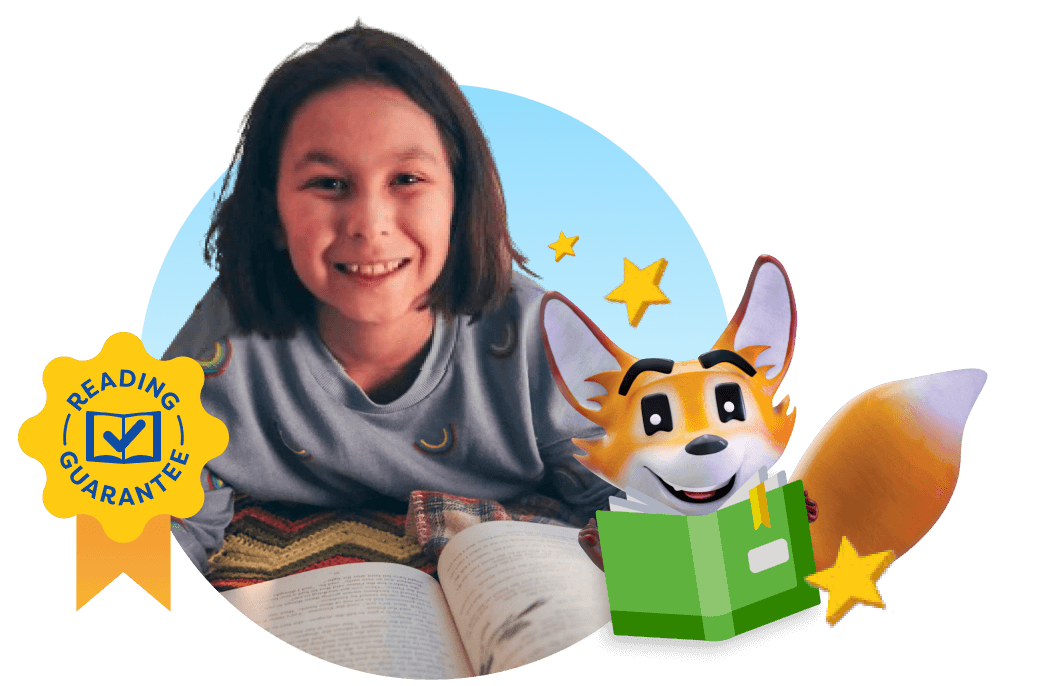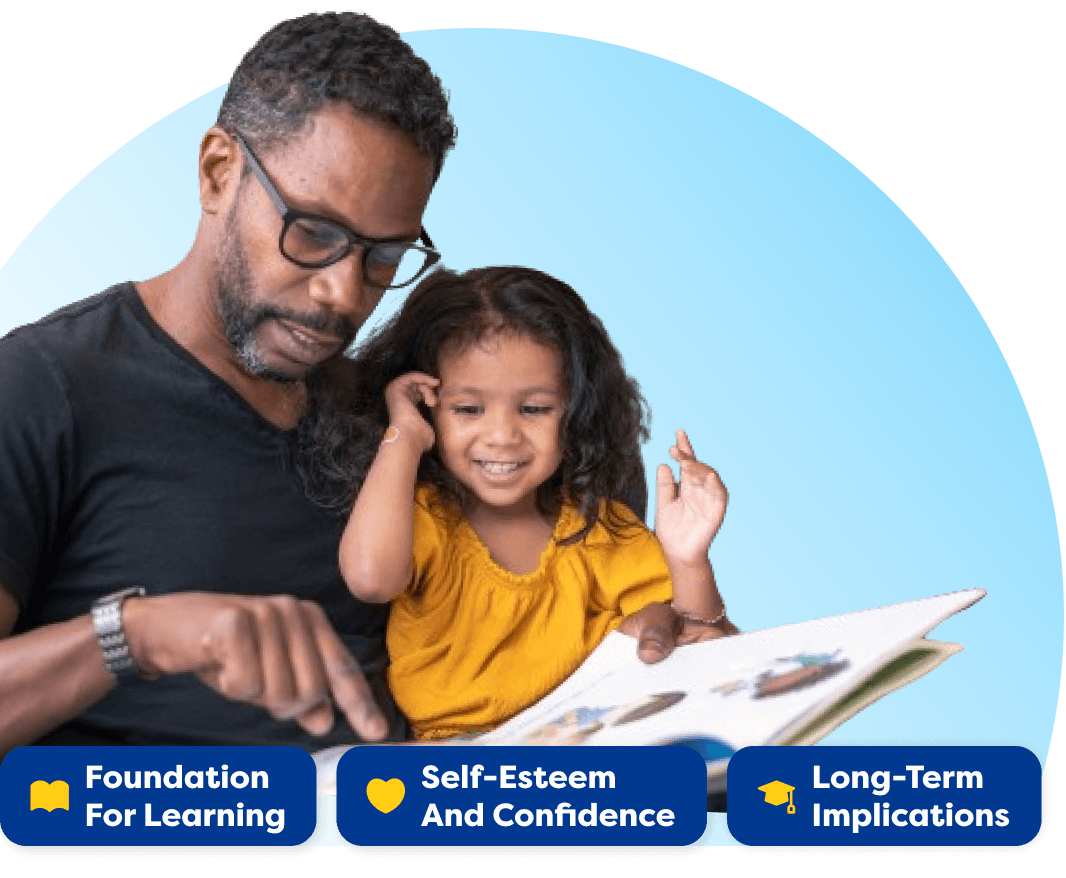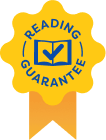Your Child’s Future Depends on Strong Reading Skills
See your child unlock the magic of reading! At K12-powered schools, proven methods, fun activities, and passionate teachers make every learning moment a triumph! And we even offer a reading guarantee.*


Reading is the most important skill for your child to learn. Here’s why:
Reading is the foundation for learning. After 3rd grade, students are expected to utilize their reading skills to comprehend other subjects such as math, science, and social studies. If they struggle with reading, they’ll likely fall behind in other subjects too.
Research indicates that students not reading proficiently by the end of 3rd grade are more likely to drop out of high school. On the other hand, being able to read at an early age boosts a child’s confidence and self-esteem—and fosters a lifelong love for learning!
Teachers make reading come alive!
Teachers at K12-powered schools use a variety of engaging online and offline activities to help students learn to read. But what really makes them special is the passion they bring to their job as educators and the joy they share with each child’s success! Watch this “ah ha” moment when a kindergartener realizes he can read.


Guaranteed Results
Being able to read on grade level by the end of 3rd grade is critical for a child’s educational success and future development. That’s why K12 guarantees that students who continuously attend a K12-powered school for grades 1–3 will read on grade level by the end of 3rd grade. If not, we will provide extra support for those learners until they read on level, at no cost to you.*
Learn more about the reading guarantee and eligibility requirements.
How does K12 teach reading?
Teachers at K12-powered schools are experts in making learning exciting! By balancing engaging online lessons, live instruction, an expansive online library, and supplemental tools, they will help your child become a confident and enthusiastic reader!
During the early elementary years, our curriculum focuses on: Phonics instruction teaches the relationship between sounds and letters, which helps students decode words and fosters early reading skills. Sight words recognition introduces frequently used words that don’t necessarily follow phonetic rules and helps improve reading fluency. Vocabulary building exposes students to a rich vocabulary through diverse texts and materials and enhances their comprehension and language skills. Comprehension strategies guide students to understand, interpret, and analyze texts to foster critical thinking and a deeper understanding of the material. Reading aloud and shared reading promotes language development, phonemic awareness, and overall reading skills. Reading workshops and independent reading allow students to explore texts independently and in group settings, encouraging a love for reading and a deeper engagement with various literary genres.
We build performance assessments into our curriculum to help our teachers understand what your child excels in and where they can grow. These regular evaluations help determine if your child is hitting reading milestones and guide any tweaks needed to keep them on the right track!
Our digital library has thousands of fiction and nonfiction titles that students can read on any smartphone, tablet, laptop, or computer. The ever-growing collection includes many titles with end-of-book quizzes to help students develop critical thinking skills.
Students at K12-powered schools have access to a variety of supplemental resources to help with reading, including: Mindplay, an educational software that personalizes instruction and mastery-based activities to make learning to read an exciting adventure for every student. And Stride Skills Arcade, an award-winning learning solution that customizes practice sessions to each child’s needs and rewards learning with games.
*K12-powered schools are schools and school districts that use a suite of curriculum and services from K12 and that K12 reports internally as K12-powered programs. Students must continue to meet the eligibility and policy requirements of their schools and states to continue their enrollment.
1Monica is the parent of a 2023 student at a K12-powered school in CA, and their statement reflects their experience at their child’s school.
2Adriana is the parent of a 2023 student at a K12-powered school in TX, and their statement reflects their experience at their child’s school.
3Michele is the parent of a 2023 student at a K12-powered school in TX, and their statement reflects their experience at their child’s school.
